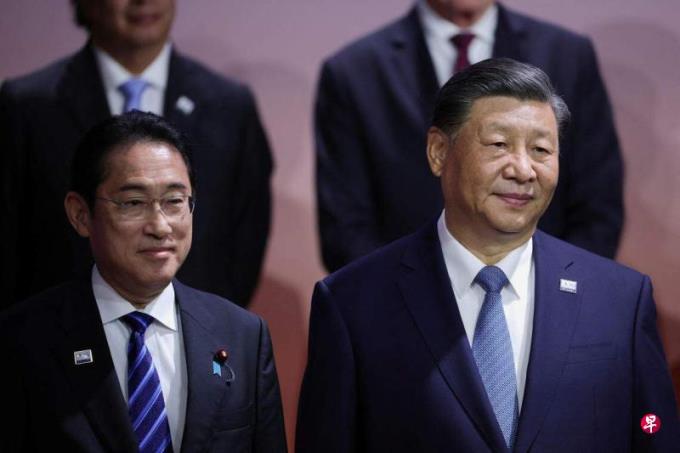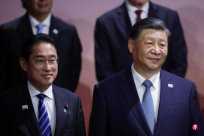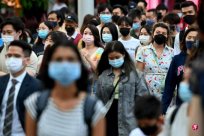
Japan and China achieved summit talks on November 16.In the summit talks for about a year, whether the "constructive and stable Japanese -China relations" based on the last talks can take a new step, it is considered one of the focus.Although Fukushima has individual problems such as water treatment water and Japanese detention, the big framework of Japan -China relations is the biggest focus.
and China and the United States have been positioned as "competitive" relationships. In 2006, Japan and China confirmed the strategic mutual benefit relationship.In 2008, Japan and China achieved more than 10 summit talks. The relationship became closely related. However, at the end of the same year, affected by the problems such as the sea, the relationship gradually became tense.In particular, the Japanese government, aimed at maintaining the status quo, acquired some private arelands of Jianye Islands (Diaoyu Islands) in September 2012. As a state -owned land, China has proposed strong protests and stopped bilateral summit talks.
After the Japanese Abe government came to power at the end of 2012, it began to improve relations with China in 2014. The summit talks in the same year in the same year, Abe officially visited China in October 2018, and finally recovered the bilateral relationshipEssenceThe normalization of China -China relations on this day is tension with Sino -US relations and is carried out in different rhythms.The Chinese President Xi Jinyuan scheduled to visit Japanese state affairs in the spring of 2020, but due to the extension of the crown disease epidemic, coupled with the Ukrainian war, the relationship between the two countries became nervous again.
Entering the 2020s, due to the development of their domestic political situation, Japan -China relations have not eased.China has strengthened the control of society in the epidemic, which has also led to toughness of external gestures.The Ukrainian war made China -Russia a piece of iron plate, spreading in developed countries, and China's domestic attitude towards developed countries became tougher.Compared with the Abe's three governments, the specific measures of the Kishida Government's normalization of China relations seem to be unpredictable.This is because the Kanada government's support foundation is weak, and Kishida and others come from the Hongchi Association of the Liberal Democratic Party, and they are not worried that the conservatives may be accused of "pro -China".According to public opinion surveys, about 85%of Japanese citizens have negatively evaluated China, and for consideration of elections, it is difficult for the Kishida government to have a substantial conversation with China.In fact, the Kishida government mentioned that the House of Representatives would not dissolve the House of Representatives almost at the same time while mentioning talks with Chinese heads, and it also proved this.
What are the results of the Japanese summit talks held in November 2023?
Of course, it is important to express their opinions frankly on food problems and Japanese detention issues, and it is important to express their opinions.At the same time, it was also confirmed that the two countries were in "strategic mutual benefit relationships".This initiative was proposed by the Abe government in 2006, the purpose is to improve the Japanese -China relations that became indifferent under the administration of Koizumi Koishi.The plan comes from the Ambassador to China, who stepped down on December 19, 2023.The concept is "not only to always solve various problems, but also for common strategic interests, unremitting communication, and seeking stability of Japanese -China relations."
In 2006, the term "strategic" in Japan was only targeted at the United States, so it was obvious that the attitude of attaching importance to China was obvious.This strategic reciprocity relationship was institutionalized as a joint statement in China and Japan on a comprehensive promotion of strategic mutual benefit relationships in May 2008, as a positioning of Japanese -China relations.However, in the 2010s, there was a big problem in the process of promoting the normalization of Japan -China relations.It is believed that based on the actual situation of the domestic GDP (GDP) status reversal of the GDP of China in 2010, new Japanese -China relations documents should be formulated.However, there are also opinions that the "strategic mutual reciprocity relationship" has not yet been fully mature, so it should be returned to the origin of 2006 or 2008.
2023 is the 45th anniversary of the conclusion of the peace and friendly treaty of Japan.At the commemorative conference, Du Xiufu put forward the opinions that should return to this strategic mutual benefit relationship.It is reported that Wang Yi, a member of the Politburo of the Mainland Government, was highly evaluated.It can be considered that because of this passing, the result of mentioning strategic mutual benefit in the Japanese leader talks.
It can be described as fruitful for Japan in 2006 and 2008.This framework is at least the framework of the era of "looking forward" in Japan -China relations, and it is also a framework for economic advantages in Japan. The most important thing is to determine the wording of the relationship between Japan -China relations.However, the "competition" between China and the United States and the "strategic reciprocity relationship" between China and China seem different. Compared with 2008, whether it is the domestic situation or international situation of the two countries, it is different.How to deal with the content that conforms to the real relationship needs to be followed up.These will be discussed in the China -Japan -South Korea summit talks held in the coming year. Kishida Wenxiong will talk to Chinese Prime Minister Li Qiang. Based on the "Strategic Mutual Relationship 2.0" in the 2020 version of the original point in 2006 and 2008, what new content can be created, prepare for it, prepareBy the attention.
The author is a professor at the University of Tokyo




